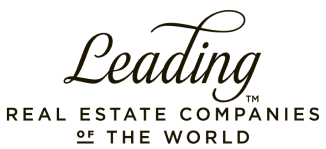It's time for home sellers to shift gear
In spite of the aggressive rate hiking by the Reserve Bank since November last year, both housing demand and the availability of bond finance have so far remained strong - but deposit percentages are now rising and buyers are extremely price conscious, says Gerhard Kotzé.
"There are very few 100% loans being granted now, and as rates have risen, the average deposit requirement has risen too, to around 10% of the purchase price. This means that most buyers once again need to have a considerable amount of cash available to finalise a purchase. And because that is difficult for them to save in a climate of high inflation and rising rates, they are really focused on finding best value for money.
"At the same time, many existing homeowners are also under financial pressure and we are seeing a rise in the number of "distressed" sales - which not only increases the supply of homes for prospective buyers to choose from, but also exerts downward pressure on prices."
Consequently, he says, home sellers need to adjust their view of the market now and really start looking at it from the buyers' point of view. They also need to make sure that they work with an experienced property professional who gives them regular feedback and the most up-to-date information about sales and prices being achieved in their area.
"A year ago, we were looking at a shortage of stock that made it very difficult for buyers to negotiate price. They were effectively paying what sellers asked for - and sometimes more - to secure the properties they wanted, and they were not really objecting, because interest rates were at their lowest levels in 40 years.
"Now, though, most households have a very different financial perspective, and home buyers have become much more inclined to make offers based on their own perceptions of value for money and potential growth, even if these are well below sellers' asking prices."
But as usual, Kotzé says, it is taking sellers longer to adjust to this market shift than buyers, "and many are unfortunately rejecting offers they consider too low and holding out for their initial asking prices until it becomes all too evident that any buyers who might have been interested in their property have simply moved on to other prospects - and more flexible sellers.
"The result is that more properties are getting 'stuck' on the market until their owners drop their asking price - as evidenced by the fact that the average listing time has risen by almost two weeks since the start of the year, and that the average differential between initial asking price and eventual selling price is also going up steadily.
"Consequently, we are strongly advising clients not to be too quick to reject any offer they get now, even if it is considerably lower than their asking price. It is always better to have a prospective buyer you can negotiate with than no buyer at all, and there are many ways for good agent to facilitate a deal that works for both parties."
28 Sep 2022
Author RealNet







